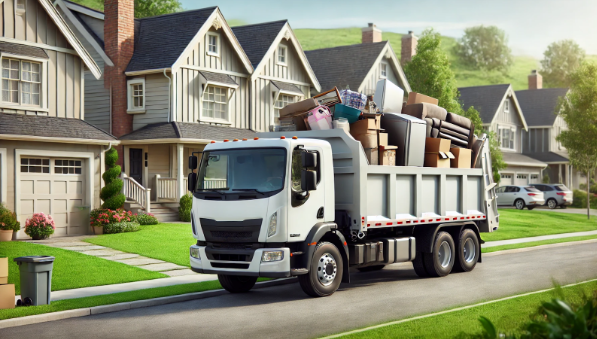
The Ultimate Guide to Residential Junk Removal: How to Declutter Your Home Efficiently
Clutter has a way of accumulating in our homes, whether it's old furniture, broken appliances, or the leftover debris from a home renovation. At some point, every homeowner finds themselves in need of residential junk removal. But where do you start? The process can seem overwhelming, but with the right strategies, you can clear your home efficiently and sustainably. In this guide, we'll walk you through the best practices for residential junk removal to help you reclaim your space.
Why Residential Junk Removal is Essential
1. Improves Mental Well-Being
Living in a cluttered environment can lead to stress and anxiety. A clean and organized space promotes a sense of calm and well-being.
2. Increases Home Value
If you're planning to sell your home, a thorough decluttering can enhance its appeal to potential buyers, making it easier to sell at a higher price.
3. Maximizes Space
Getting rid of unused items opens up valuable space in your home, allowing you to repurpose rooms for other uses, such as a home office or gym.
4. Supports Sustainability
By donating and recycling items, you reduce landfill waste and support a more sustainable lifestyle.
Step-by-Step Guide to Residential Junk Removal
Step 1: Assess Your Junk Removal Needs
Before you start throwing things out, take inventory of what you have. This will help you decide the best course of action.
- Make a list: Identify what you want to keep, donate, recycle, or throw away.
- Prioritize rooms: Start with the most cluttered areas, such as the garage, basement, or attic.
- Set a timeline: Allocate specific days for decluttering to avoid feeling overwhelmed.
Step 2: Sort and Separate Items
Organizing your junk into categories will make the disposal process much smoother.
| Category | Examples |
|---|---|
| Keep | Sentimental items, essentials |
| Donate | Gently used furniture, clothes, toys |
| Recycle | Electronics, metals, cardboard, plastics |
| Trash | Broken, non-recyclable items |
Step 3: Donate or Sell Usable Items
Before you toss anything out, consider donating items that are still in good condition.
- Where to donate:
- Goodwill, Salvation Army, local shelters
- Schools, churches, and community centers
- Selling options:
- Host a garage sale
- List items on platforms like Facebook Marketplace or Craigslist
Step 4: Recycle Responsibly
Recycling helps reduce waste and conserve resources. However, not all items can be recycled curbside.
- Common recyclables:
- Electronics: Old phones, computers, and appliances
- Metals: Aluminum cans, scrap metal, and wires
- Paper and Cardboard: Boxes, newspapers, magazines
- How to recycle electronics: Look for local e-waste recycling centers or events.
Step 5: Hire a Professional Junk Removal Service
For large amounts of junk or heavy items, hiring a professional service can save you time and effort.
How to Choose the Right Junk Removal Service
1. Check Their Services
Not all junk removal companies offer the same services. Some specialize in residential cleanouts, while others handle construction debris or hazardous waste.
2. Read Reviews and Get Referrals
Look for companies with positive reviews and ask friends or family for recommendations.
- Key questions to ask:
- Do you recycle or donate items?
- What is your pricing structure?
- Are there any hidden fees?
3. Ask About Disposal Methods
Ensure the company prioritizes recycling and donating items instead of sending everything to the landfill.
FAQs on Residential Junk Removal
Q1: How much does residential junk removal cost?
The cost varies based on the volume of junk, type of items, and your location. On average, homeowners can expect to pay between $150 to $600 for a full truckload.
Q2: What items can I recycle?
Most curbside recycling programs accept paper, cardboard, plastics, and metals. For electronics and hazardous materials, you'll need to find specialized recycling centers.
Q3: Should I rent a dumpster or hire a junk removal service?
Rent a dumpster if you're working on a large project, such as a renovation. Hire a service for quick cleanouts or if you have heavy, bulky items to dispose of.
Q4: Can I donate old furniture?
Yes, many organizations accept gently used furniture. However, items should be clean and in good condition.
